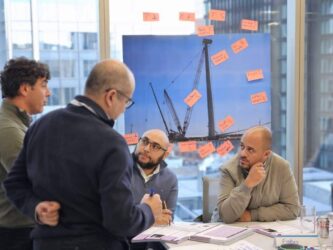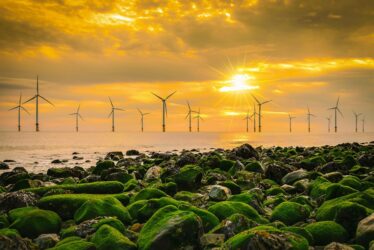It’s a matter of days until the COP26 climate summit starts in Glasgow, UK. Whilst some prominent media houses are already questioning whether 25,000 people should really travel to the event, others are arguing that face-to-face meetings are the best way for their voices to be heard.
Getting on track
This is on the back of failed pre-COP26 digital meetings between the UN and its signatories – a digital disaster – as some countries put it.
It makes one wonder if global meetings organised between governments and one of the most prominent global organisations are blighted by basic IT infrastructure challenges and dodgy Zoom connections – what impact will this have on controlling our CO2 emissions?
IRENA’s Global Energy Transformation Roadmap makes the case for just shy of 17,000GW of installed energy capacity if we had to achieve less than 2 degrees atmospheric warming by 2050. With renewable assets being dependent on data streaming, floundering Zoom calls in 2021 does not bode well.
The race
This is perhaps one of the many reasons that COP26 goals are so stretching. A call to secure global net zero emissions by mid-century and to keep 1.5 degrees within reach; is the first leap out of the proverbial running blocks.
Countries are expected to support this step by:
- accelerating the phase-out of coal
- curtailing deforestation
- speeding up the switch to electric vehicles
- encouraging investment in renewables.
The race strategy does not stop there. Countries must adapt to protect communities and natural habitats. And to do all this, they were expected to mobilise at least $100bn per year in climate finance by 2020 – an ambitious target that 2020 is unlikely to deliver according to the pre-COP26 chairs summary published in Sept 2021.
A relay
This is clearly not a one horse race. The final COP26 goal is to work together to combat our looming climate crisis. Collaboration is considered an essential ingredient in accelerating action and adaptation at global, governmental, business and civil society levels.
If multi-level collaboration is a critical catalyst in the COP26 race strategy, it does raise questions as to why the COP President Designate calls for a global work program on climate empowerment, education, training, and public awareness, participation and access to information as item 9 / 13 in his letter to the UNFCCC parties.
Thinking global, acting local
Companies and employers do not have to wait for such a program to commence. If reaching our climate finance goals is wearing us thin when we are barely out of the starting blocks, the lack of training, education, participation and access to information will definitely be the hallmarks of our lacklustre race.
Carrying this burden on their shoulders are the renewable companies, investors, decision makers, platform and technology developers and their supply chains. Continuing in the current vein of under-investment in their workforces and drive for short term gains may only win the first few sprints but struggle to bring the baton home at the end.
However, many in this group are pushing the boundaries of technology, financial instruments, and global supply chains. There are a few though, who are setting themselves up for 2050 and beyond. They understand that when ‘net-zero’ is no longer a buzz-phrase, it’s a minimum requirement.
No half measures
These few do not believe in half measures. They are adjusting their thinking now. Reframing the view of energy market by relentlessly pursuing energy security through smart decision making, improved asset integrity and reliability and risk reduction.
People are at the heart of this movement, not cheap debt nor over inflated PPAs. Long term asset strategies instead of short term flipping. These are the companies that will survive to 2050 and beyond.
We work with these companies. Their leaders are forward thinkers. Undaunted and resilient, their focus is holistic. They act locally and their results speak globally. They are the athletes who we need in our relay, one that will win the race towards net zero.
Complimentary systemic leadership mini-series
In support of race to zero, we are pleased to invite you to join our systemic leadership mini-series. Just for you and your leadership. A complimentary offer from us at ARMSA, to you!
Comprising four short sessions presented by our NED, Jimmy Hansson, they contain the strategies that he has employed to grow wind and solar asset portfolios, globally.
Click here to grab your complimentary ‘tickets’. And please Share the Word.
The Journey to 2050 – No Half Measures © 2021 by Rakesh Maharaj – ARMSA is licensed under CC BY-NC-ND 4.0






